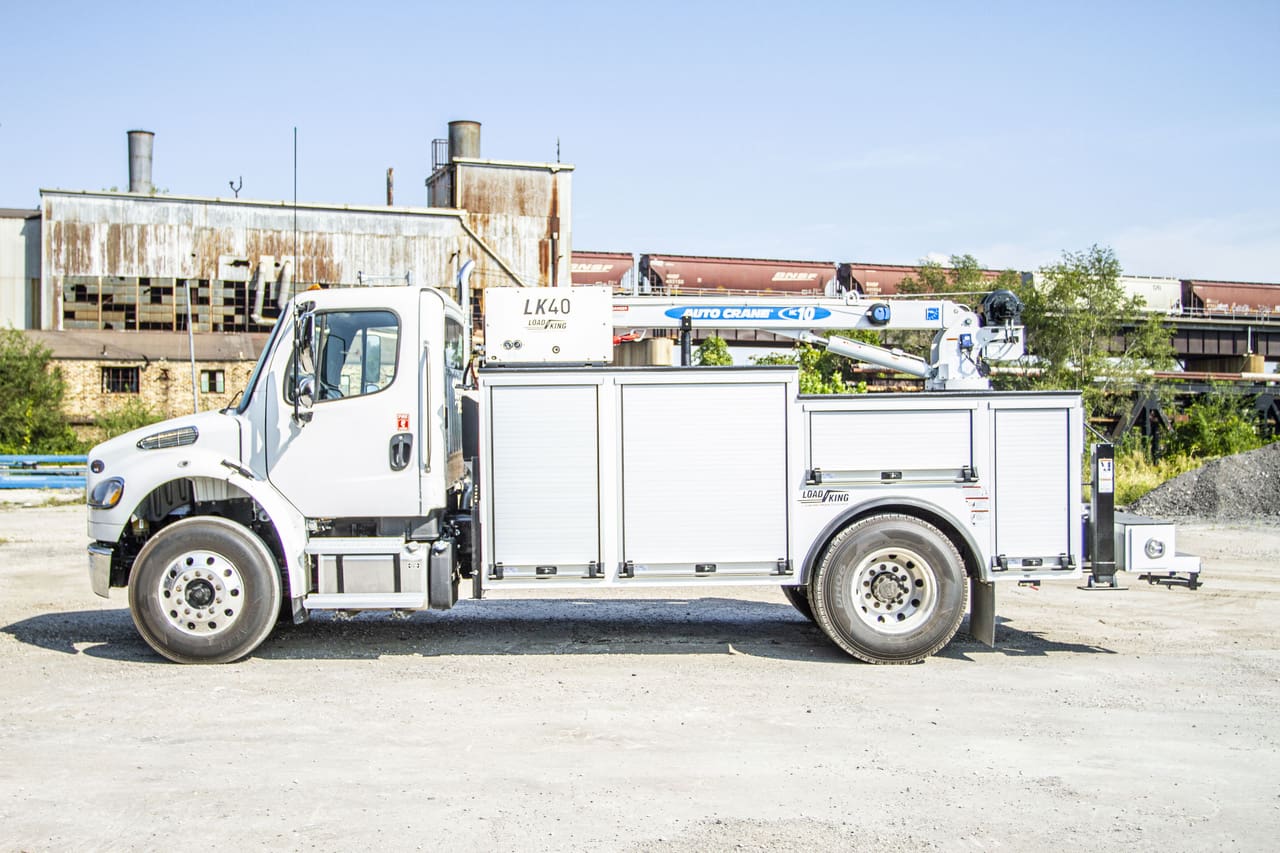
Aluminum and steel – two metals that look very similar and two of the most popular choices for a truck body or bed. Both have their unique advantages and disadvantages, and it isn’t an easy task for fleet managers to choose one over the other when adding new trucks to their line.
While steel has been around for ages, aluminum is the shiny, new kid on the block. At one third the weight of steel, it is an extremely attractive alternative, and the touted 700-lbs weight drop in aluminum Ford F-150s is a frequently referenced example in the auto industry. However, we have historically depended on steel, the traditional truck body metal of choice that still offers more durability.
So, which should you choose?
As any experienced fleet manager will tell you, it’s always a balancing act. Matching performance needs with the inherent properties of these metals is difficult. We’re going to try to help you make an informed purchase decision by analyzing their weight, strength/durability, cost, fuel efficiency, safety, and maintenance.
# 1: Weight
Aluminum is approximately 1/3rd the weight of steel. An aluminum truck bed, for example, typically weighs up to 40% less than a steel bed of the same strength. This means trucks with aluminum bodies and beds can significantly increase payload, while conforming to legal weight restrictions. For every pound the truck isn’t hauling as part of its own weight, you’re basically adding a pound to the payload. Less weight also means less stress and strain on the tires and fuel system, which can increase life expectancy.
# 2: Strength & Durability
Steel is proven to be strong and durable, with 2.5 times the density of aluminum. This is a major contributing factor when choosing a hardworking truck that can withstand years of strenuous use. Steel bodies (much of the market uses galvanneal steel) are ideal for heavy duty jobs. A landscaper, for instance, may find steel more resistant to the impact of loading/unloading substantial hardscaping materials, like boulders and rocks. So, if you are going to haul heavy material or equipment, steel is probably what you should consider.
That said, there is definitely an argument that aluminum can be `thickened’ and `strengthened’ and still be lighter than steel. Alloys, such as chromium, copper, titanium, and zinc can be used to reinforce 95% pure aluminum in order to enhance its strength and durability.
# 3: Corrosion Resistance
Rust is one of a truck’s worst enemies, because it can literally eat holes into the truck body and engine. Unless contained and fixed, rust can spread rampantly.
Steel manufacturers coat the metal’s surface with a galvanic layer of zinc to discourage formation of rust. Unfortunately, if that defensive coating is breached by a bump or a scratch, the underlying metal becomes vulnerable to rust.
In contrast, aluminum offers far superior protection against rust. The innate properties of aluminum create a protective oxide layer that fends off rust. Therefore, treating aluminum to resist corrosion is a much cheaper option than treating steel for the same. Because of this, resale value of aluminum bodies can also be higher than for steel ones.
# 4: Maintenance
The lighter weight of aluminum means less wear and tear on the engine, tires, weight springs, etc. This in turn means less maintenance. Add to this the protection it affords against rust damage and resistance to weather conditions like salt, ice, and snow, and the balance often tips in aluminum’s favor.
# 5: Cost
While aluminum bodies require less repair, which means less money spent over time, they are significantly more expensive to buy. This initial difference may turn the tide during the decision-making process in steel’s favor, as it costs approximately 30% less than aluminum options.
“Aluminum in today’s market is an alternative for people working in road conditions with salt, snow, and ice,” says Mark Partlow, Product Manager for Service Trucks at Custom Truck One Source (CTOS). “Sure, there is a bit of weight savings, but not a lot for all the extra money you’re going to have to pay to acquire one.”
# 6: Safety
It’s a pretty common and long-held perception that steel offers more structural integrity and hence more protection for drivers operating the vehicle. But in recent steel truck and aluminum frame tests, the latter has shown itself to be a worthy competitor when it comes to safety.
Aluminum is environmentally friendly, too. Its production involves recyclable materials that then don’t end up in landfills, and no harmful chemicals are used. In fact, recycled aluminum products make up 85 % of total aluminum.
# 7: Fuel Efficiency
The lighter weight of an aluminum truck body means more mileage per gallon. This makes them 8%-10% more fuel efficient than steel-bodied ones. So, if the truck you’re purchasing will traverse long distances in the course of its daily job, then the fuel savings with aluminum is certainly something to consider.
What About Fiberglass?
As far as fiberglass is concerned, not many people opt for this material. For one, fiberglass is very expensive to repair. The door openings are smaller because of the reinforcement that is needed. They are lighter, but they don’t have the inside storage space that a steel or aluminum truck body would have. Fiberglass is primarily used in the utility industry because of weight and aesthetics. It looks good, it doesn’t rust, and the utility sector doesn’t need much extra room inside like a mechanic does. So, it works better in niche applications (like utility) than it does in mainstream ones.

